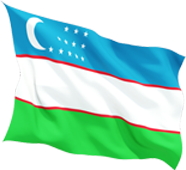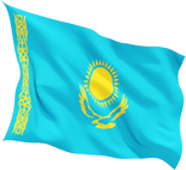Uzbekistan, nestled in the heart of Central Asia, has historically been a melting pot of cultures and civilizations, thanks to its pivotal role in the Silk Road. Its rich tapestry of history reflects a blend of empires, nomads, and diverse cultures that have left their mark over millennia.
However, in the contemporary era, despite its strategic location and potential, Uzbekistan often remained in the periphery of global dialogues and didn’t fully realize its potential on the international stage. Yet, a transformative shift has been observed recently.
The past decade, in particular, has been momentous for the nation, witnessing a remarkable climb in a plethora of international rankings. These rankings, spanning from economic indicators to social parameters, not only highlight the nation’s progress but also underscore its burgeoning role in the global arena.
In this regard, it is important to implement an effective decision-making system based on openness in public administration. It is necessary to review the principles and mechanisms of mutual cooperation between the state management and executive bodies, each state body must ensure the implementation of state policy in the area assigned to it and be fully responsible for the final result. Such a democratic method of state management is very compatible and harmonious with the large-scale reforms carried out in Uzbekistan today, first of all, the principle of dialogue with the people.
Uzbekistan has improved its position in the public administration quality index compiled by the World Bank. The index includes accountability, political stability, government efficiency, corruption control and other indicators.
The experts of the World Bank announced the updated indicators of public administration (World Governance Indicators, WGI) for 2021. The country is reported to have improved in all six areas after a negative performance in 2020.
The WGI index is divided into such parts as “reporting”, “political stability and absence of violence”, “government efficiency”, “quality of regulatory and legal documents”, “rule of law and anti-corruption control”. The World Bank does not independently rank countries according to this index.
The Regulatory Quality Index assesses a government’s ability to “design and implement effective regulation that supports private sector development.” The indicator takes into account many indicators from different sources, in particular, the organization of the market and competition (from the political change index calculated by the Bertelsmann Foundation in Berlin), the level of unfair competition, price controls, discriminatory tariffs and taxes, excessive protectionism (estimated by the Economist Intelligence Unit in London). , inconsistencies in the tax system and regulatory burden (according to Global Insight), investment and financial freedom (according to the Heritage Foundation Index of Economic Freedom in the United States), law enforcement practices (according to The World Justice Project), etc.
In the preparation of the index, other calculations are taken into account, in particular, the World Bank, the European Bank for Reconstruction and Development and the World Economic Forum. All this information is aggregated and the regulation indicator itself can range from -2.5 (worst) to 2.5 (best). Neutral level is 0.
Management is total in the formation of quality indicators
30 information sources are used. Unlike last year, 16 sources of information were used to calculate the indicators of Uzbekistan.
According to “Government efficiency”, Uzbekistan is among 208 countries
Ranked 116th, rose 22 places.
The effectiveness of government is greatly influenced by the quality of public services, the degree to which the public office operates and its independence from political pressure, the quality of policy development and implementation, and the credibility of the government’s commitment to such policies.
The indicator of the position of Uzbekistan in comparison with other countries is 44.7 percent, that is, in 44.7 percent of countries, the level of public administration efficiency is worse than in Uzbekistan. A year ago, this figure was 34.1%.
Therefore, embarks on a journey to delve deeper into the nuances, mechanisms, and strategies that have steered Uzbekistan towards this commendable ascent, shedding light on the key aspects that have been instrumental in repositioning it on the global map.
Extensive reviews of databases and published reports from globally recognized institutions, such as the World Bank, the United Nations, the World Economic Forum, and regional bodies like the Shanghai Cooperation Organization, were undertaken. Special emphasis was placed on annual reports, policy reviews, and specific country analysis documents that detailed Uzbekistan’s performance metrics over the past decade.
A series of surveys were distributed to business leaders, both domestic and international, operating in Uzbekistan. These surveys aimed to gather perceptions on the nation’s business environment, reforms, and the overall ease of operations.
Trend analysis was employed to map out Uzbekistan’s progression in numerical terms. Data visualization tools, such as graphs and charts, were used to highlight significant inflection points and shifts in rankings. Statistical tests, where applicable, were used to determine the significance of observed changes.
Content analysis was conducted on textual data sourced from reports, interview transcripts, and survey responses. This allowed for the identification of recurring themes, sentiments, and narratives that could shed light on the qualitative aspects of Uzbekistan’s growth. Particular attention was given to policy descriptions, reform initiatives, and strategic partnerships to decipher their impact on the country’s international standing.
To position Uzbekistan’s growth in a broader context, its trajectory was juxtaposed against select neighboring countries and global averages. This comparison offered a perspective on the nation’s performance relative to its peers and the global landscape.
Uzbekistan introduced a series of economic reforms that bolstered foreign direct investment, leading to higher GDP growth rates and an improved ranking in the ease of doing business.
Efforts to lessen the dependence on traditional sectors, like cotton, have seen a rise in areas such as tourism, technology, and manufacturing.
The restructuring of the education system, emphasizing technological integration and vocational training, has enhanced its human capital index.
Reports indicate a marked improvement in the areas of freedom of expression, assembly, and the press.
Uzbekistan’s commitments to sustainable practices and renewable energy sources have positively influenced its ranking in global environmental indices.
The multifaceted approach adopted by Uzbekistan provides valuable insights into nation-building in the 21st century. The nation’s economic pivot, transitioning from an insular model to one inviting international collaboration, has been instrumental in its upward trajectory. By focusing on sectors beyond its traditional strengths, Uzbekistan has showcased adaptability.
Education emerges as another cornerstone. By recognizing the demands of a modern economy, Uzbekistan’s focus on integrating technology into curricula and emphasizing vocational training demonstrates forward-thinking.
The enhancements in civil liberties indicate not just a response to international pressure but possibly a more intrinsic societal evolution, reflecting a broader global trend towards transparency and freedom.
Lastly, Uzbekistan’s environmental initiatives are particularly commendable. In an era where climate change impacts are undeniable, the nation’s commitment to sustainable practices offers hope and serves as a model for others.
Uzbekistan’s trajectory in international rankings is a testament to its adaptive reforms and strategic initiatives. As the country continues on this path, it solidifies its place not just in rankings but in global relevance and influence.
Tokhir Khasanov,
Academy of Public Administration
under the President of the Republic of Uzbekistan,
DSc. in Economics, Associate Professor.











